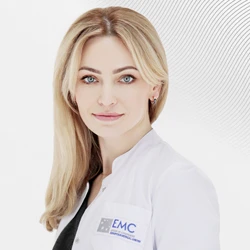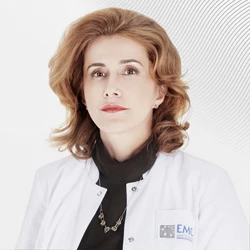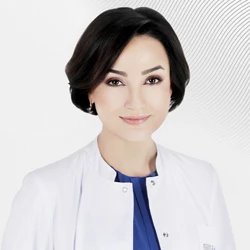Breast cancer and ovarian cancer is a topic of concern to many women. This is due to the fact that breast cancer is the most common cancer among women. With a life expectancy of up to 80 years, the risk of developing breast cancer is 12.5%, meaning one in eight women gets it.
Approximately 10% of the total number of breast cancers are hereditary and are associated with certain genes. The normal functioning of the BRCA1 and BRCA2 genes prevents the development of breast cancer and ovarian cancer. If a "breakdown" (mutation) occurs in one of the copies of the genes, the probability of developing breast cancer increases greatly (up to 85%).
Ovarian cancer is the leading cause of death among gynecological malignancies. Its peculiarity lies in the fact that, despite the latest diagnostic capabilities, 85% of women with ovarian cancer still turn to an oncogynecologist already at the 3rd and 4th stages, when the chances of cure even with the most advanced surgical techniques and the latest chemotherapy regimens are not very high.
In the presence of a BRCA1 gene mutation, for example, the risk of developing ovarian cancer is 54%, and the risk of dying from this disease in every healthy carrier of this mutation is about 20%.
The gene responsible for breast and ovarian cancer can be passed down from both mother and father. If this gene is present in one parent, then the risk of its inheritance is 50%. If the gene is inherited, then the risk of developing cancer depends on the specificity of the gene, its manifestations in the family history, as well as on the individual characteristics of the organism. The risk of developing breast cancer in such families ranges from 40 to 80%, and ovarian cancer – from 25 to 54%.
It should be remembered that breast and ovarian cancer, which has arisen as a result of a genetic predisposition, manifests itself and is treated in exactly the same way as oncological diseases that occur in non-carriers of mutations, but more often affects younger women.
Many women whose relatives have breast cancer or ovarian cancer want to know if they have an increased risk of developing these diseases in order to prevent the appearance of a tumor if possible.
By donating blood for testing, you can determine whether you have inherited a predisposition to breast and ovarian cancer associated with the BRCA1 and BRCA2 genes.
Indications for the study of genetic predisposition to breast cancer and ovarian cancer:
-
having two or more relatives with breast cancer;
-
breast cancer detection under the age of 45;
-
bilateral or multifocal breast cancer;
-
ovarian cancer;
-
the presence of even one relative with ovarian cancer or breast cancer who was diagnosed before the age of 40;
-
breast cancerin a male relative;
-
if a mother, sister, or daughter suffers from breast cancer;
-
if many generations in the family had breast or ovarian cancer;
-
relatives suffering from breast cancer at a relatively young age (under 50 years old);
-
relatives suffering from cancer of both mammary glands.
Information about hereditary predisposition to breast and/or ovarian cancer in combination with gynecological and mammological examinations will help doctors determine individual preventive and therapeutic tactics.
Goals of genetic research:
-
assessment of the risk of hereditary breast cancer and ovarian cancer;
-
development of optimal tactics for monitoring high-risk patients, drawing up a breast cancer treatment plan and recommendations for preventive operations that significantly reduce the risk of ovarian cancer in the future.
What to do when BRCA1, BRCA2 gene mutations are detected
If you have relatives with this genetic abnormality, genetic testing has undeniable advantages.:
-
If no gene mutations are detected, the doctor is more likely to say that you have the same low risk of developing breast or ovarian cancer as other women.
-
If the results of genetic testing are positive, then careful monitoring of the condition of the breast and ovaries can help detect cancer at an early stage, when it is still curable. For this, fundamentally different protocols of early diagnosis are used than in normal cases, screening begins 5-10 years earlier.
-
You may be recommended certain medications to prevent breast cancer, such as tamoxifen or hormonal medications.
-
You may be offered preventive surgery (removal of the breast, ovaries, fallopian tubes, or all of these organs).
-
If you have cancer, your genetic profile may provide more information for choosing the most optimal and specific treatment method.
-
Finally, if you know that you are a carrier of a mutation in the ovarian and breast cancer gene, you can change your previous lifestyle.
The main goals of diagnosing hereditary forms of breast cancer and ovarian cancer are not only to identify the presence of mutations in genes, but also to determine the most optimal, individual tactics for further screening and prevention of these serious diseases.
Was this information helpful?
Questions and answers
How can you tell true contractions from false ones during pregnancy?
Only a doctor can tell true contractions from false ones after an examination and additional tests.







.webp)



.webp)



.webp)
